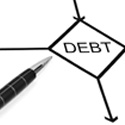
 You have decided to purchase a new home. Now questions start racing through your mind. How much do we put down? What is our interest rate going to be? Do we get a fixed loan or a variable loan? Do we finance it over 15 years or 30 years? In today’s historically low interest rate environment the answer to some of these questions may surprise you.
You have decided to purchase a new home. Now questions start racing through your mind. How much do we put down? What is our interest rate going to be? Do we get a fixed loan or a variable loan? Do we finance it over 15 years or 30 years? In today’s historically low interest rate environment the answer to some of these questions may surprise you.
Let’s take a scenario between John Doe and John’s identical twin brother Jack Doe. John and Jack have the same exact job, the same income, and the same assets. Everything about them is the same except for how they approach money decisions. John is a firm believer in staying out of debt. He doesn’t believe in financing anything. He pays cash for cars, houses, vacations etc… Jack on the other hand believes that responsible use of debt could be a good way to get ahead in life. He firmly believes that you shouldn’t put more then 20% down on a house, you should finance a car, especially when interest rates are less then 3%, he’ll even put a vacation on a credit card to earn the mileage points, making sure he pays it off within a month or two.
John and Jack are looking to purchase an identical home in the same neighborhood; same square footage, same interior design, same lawn animals, same everything. The purchase price of the house is $250,000. They both have identical investment portfolios valued at $250,000. John has the option to finance it with a 30-year fixed loan at 3.5%. But instead John takes a look at his finances and decides he will take the money out of his investment portfolio and buy the house outright. John now has no money left in his investment portfolio, but at least this will save him that pesky $1,200 mortgage payment over the next 30 years. He doesn’t like the fact that his investment portfolio now has a 0 balance, but he intends to rebuild his drained investment account by adding $1,200 each month.
Jack, on the other hand, decides he is only going to put down 20% on the house and keep the rest of his money invested. He needs to come up with 20% of $250,000, or $50,000. After the down payment, Jack will have $200,000 remaining in his investment account. He won’t be able to add any funds to his investment account because he needs that money to pay the mortgage.
Let’s break down the impact of their decisions after 10 years factoring at a 6% interest rate compounded annually for their investments. Let’s also assume the value of their homes has also appreciated in value at 6%:

Jack has less equity in his house because he put 20% down so, after 10 years, he still owes the bank $150,000 on the original $200,000 mortgage note. From the totals, it might appear that Jack made a slightly better money decision, but life is not quite that simple. We can’t possibly account for all the “what if’s” that life might throw at the two brothers over that 10 year period.
Here are some things to consider:
- What if John had a sudden emergency such as an unexpected job loss over that 10-year period? He has no liquidity to tap into to help him pay the bills because he spent it all on the house.
- How much mortgage interest can John deduct off his income tax bill annually? None because he doesn’t have a mortgage!
- What if house prices in the neighborhood depreciate in value instead of appreciate? Jack could potentially hand the keys back to the bank whereas John could be stuck with a rapidly depreciating asset.
- What if John isn’t as disciplined as he thought he was and starts spending the $1,200 a month instead of saving it? Jack might not be as prone to this problem because there is a big consequence to him not paying the bank $1,200 a month which is that he loses the house.
As you can see, having a mortgage might not be the worst thing in the world. Even though it bucks the traditional value of having a home paid off as quickly as possible, there can even be some advantages to using debt responsibly. Make sure you talk to your financial planner when deciding if you’ll follow Jack or John’s example.
The example contained herein is hypothetical and for illustration purposes only. It is not intended to reflect the actual performance of any particular investment. Actual investor results will vary. Investing involves risk and investors may incur a profit or a loss. Any information is not a complete summary or statement of all available data necessary for making an investment decision and does not constitute a recommendation. Any opinions are those of Center for Financial Planning, Inc., and not necessarily those of RJFS or Raymond James. You should discuss any financial or mortgage matters with the appropriate professional.


